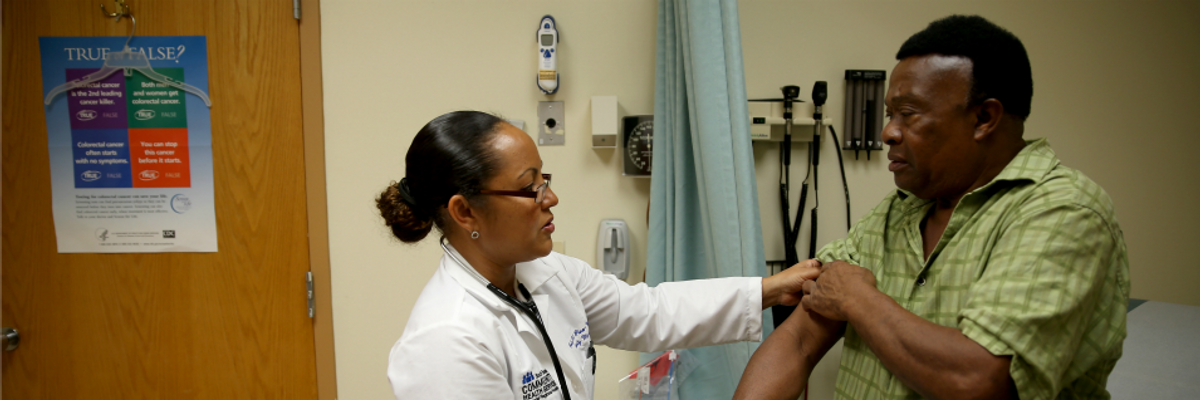A CBS-affiliated local TV station in Seattle is sending notices to about 1,000 area residents telling them that the station has wiped out a portion of their overdue medical bills.
After interviewing a woman who was unable to afford cancer treatment due to the hospital bills she would incur, KIRO-TV worked with a New York-based charity called RIP Medical Debt to buy $1 million worth of debt owed by people in the station's coverage area.
"I am a cancer survivor," Jesse Jones, who reported on the woman's story for KIRO, told Poynter. "When you have $200,000 in medical bills, even with insurance, you are on the hook for some of that...I said 'Let's talk about the people who have issues, big issues with the bills that have forced them into bankruptcy, forcing them to make choices about whether to get treatment.'"
According to its website, RIP Medical Debt, a 501(c)3 organization that was founded by former debt collectors, "locates, buys and forgives medical debt across America, the only industrialized nation on earth with personal medical debt."
The group works with donors like KIRO and forgives debts held by hospitals' and doctors' neediest patients, as a tax-free gift to each patient. The TV station did not see the names of any of the people whose debt they were clearing.
KIRO was able to spend only $12,000 to purchase and forgive $1 million in overdue medical bills--similarly to how collection agencies can buy a $1,000 medical bill for as little as $10, leaving the debtor owing more and more as the bill goes unpaid and interest accrues.
While personal medical debt is unheard of in countries with universal healthcare systems, American debtors' reliance on random acts of kindness like the ones administered by RIP Medical Debt has become troublingly commonplace, with patients turning to crowdfunding websites like GoFundMe to solicit donations in order to help pay their bills.
Medical bills are the number one underlying cause of personal bankruptcies in the U.S., with medical bankruptcies affecting nearly two million Americans per year.
Since purchasing its viewers' medical debt, KIRO has heard from a number of people in the Seattle area who want to contribute to debt purchasing and forgiveness. The station has set up a website where viewers can donate to upcoming efforts.

